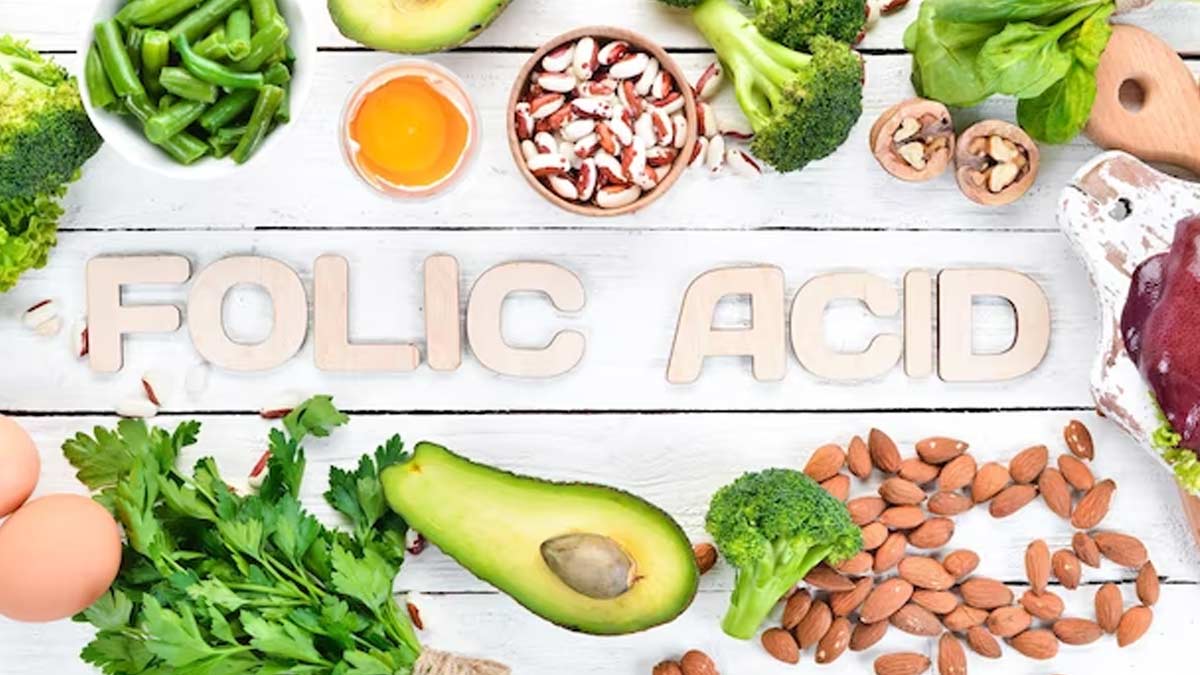
When it comes to essential nutrients for maintaining good health, folate and folic acid often take centre stage. These two terms are frequently used interchangeably, but they do have distinct characteristics. Thus, understanding the differences between folate and folic acid is crucial for making informed dietary choices.
Table of Content:-
Basic Difference Between Folate and Folic Acid
Folate is a water-soluble B-vitamin that naturally occurs in various foods, particularly green leafy vegetables, legumes, and citrus fruits. On the other hand, folic acid is the synthetic form of folate, typically found in dietary supplements and fortified foods.
The Metabolism Process
One of the primary distinctions between folate and folic acid lies in how they are metabolised in the body. Folate is readily absorbed in its natural form and converted into its active form, 5-methyltetrahydrofolate (5-MTHF), through a series of enzymatic reactions in the intestines and liver.
Folic acid, however, requires additional enzymatic conversion before it can be utilised by the body. This transformation process is not as efficient, and it is estimated that only a portion of folic acid is converted into the active form.
Dietary Benefits
DNA Synthesis and Cell Division
Both folate and folic acid play a vital role in DNA synthesis and cell division, making them crucial for proper growth and development. According to Dr Archana Dhawan Bajaj, Gynaecologist, Obstetrician and IVF Expert, Nurture IVF Clinic, they are especially important during pregnancy, as they help prevent neural tube defects in the developing foetus.

Red Blood Cell Production
According to research, folate and folic acid both contribute to the production of red blood cells, which carry oxygen throughout the body. Adequate levels of these nutrients are essential for preventing anaemia and promoting overall cardiovascular health.

Also read: From Moisturisation To Brightening Skin Tone: Benefits Of Vitamin E For Skin Health
Homocysteine Regulation
Elevated levels of homocysteine, an amino acid, have been associated with an increased risk of heart disease. Folate and folic acid help convert homocysteine to methionine, an essential amino acid, thereby aiding in its regulation and potentially reducing the risk of cardiovascular problems.
Mental Health and Cognitive Function
Research suggests that folate plays a role in maintaining mental health and cognitive function. Low levels of folate have been linked to depression, and supplementation may have a positive impact on mood disorders.
Sources and Recommendations
To ensure an adequate intake of folate, it is advisable to consume a varied diet rich in folate-containing foods. Good dietary sources include leafy greens (such as spinach and kale), legumes (such as lentils and chickpeas), citrus fruits, avocados, and fortified grains and cereals.
For people who may struggle to meet their folate requirements through diet alone, folic acid supplementation or fortified foods can be an alternative. Pregnant women are typically advised to take a folic acid supplement to prevent neural tube defects.
Folate, found naturally in foods, is readily absorbed and converted into its active form, while folic acid requires additional enzymatic conversion. Regardless of the source, ensuring an adequate intake of folate or folic acid is crucial for overall health, particularly during pregnancy.
Also read: 8 Important Vitamins For Body And Their Benefits
Remember, whether it's folate-rich foods or folic acid supplements, incorporating these nutrients into your diet can have significant health benefits in various aspects of your well-being.
Disclaimer: The information provided in this article is for educational purposes only and should not replace professional medical advice.
Also watch this video
How we keep this article up to date:
We work with experts and keep a close eye on the latest in health and wellness. Whenever there is a new research or helpful information, we update our articles with accurate and useful advice.
Current Version